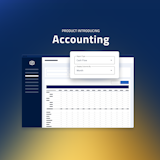QuickBooks For Real Estate Investors and Property Managers: Good Or Bad Idea?
Intuit’s QuickBooks is a powerful tool used by small businesses to keep track of their income and expenses. But, is it a good tool for real estate investors to track and request rent, manage capital expenditures, and be a more hands-off or remotely managed?
There are some benefits to QuickBooks for real estate investors, such as transactional strategies like fix and flips and wholesaling. You can also have accesses set up for multiple team members.
QuickBooks is an accounting tool, which all small businesses need, but it is not an operational tool designed for real estate investors or property managers. That is why a hybrid approach to using QuickBooks alongside another real estate-specific tool is a great strategy. Let’s take a closer look.
Cost of Quickbooks for real estate investors
QuickBooks has two variations—online and desktop—and each has its own fee structure. For instance, QuickBooks Online charges a 1% ACH fee, whereas the QuickBooks Desktop version charges $3 per transaction. If you have more than one rental property, it’s worth checking out other options that don’t charge an ACH fee, like Hemlane.
Basic plans for QuickBooks start at as little as $7.50 a month, all the way up to a few hundred depending on your needs and requirements for payroll features. The fee structure is flexible, so you can pick the plan that suits your current needs without overpaying.
Setting up a rental property in QuickBooks
This actually is relatively simple. QuickBooks operates on a number of fundamental inputs, including classes, customers, and items, among many others. For the purposes of entering a rental property, use the following simple steps:
- Enter each property as a class.
- Each unit in that property will be a customer. If you only have one unit in that property you can skip this step.
- Enter each tenant as a job.
- Enter the rent amount as an item.
- Add any payees as vendors.
Then you can use QuickBooks input items for services or inventory you have on the go, tracking anything in the realm of repairs and maintenance.
As with anything, there are a number of ways to track all the above data in different inputs. For instance, there are sub-classes and customers that you can use to track the above. For the purposes of this article, you can follow the above hierarchy or chat with your accountant.
Features where QuickBooks is robust
After you’ve set up your QuickBooks account, real estate investors and landlords should test out some of the key features that are applicable to our businesses. Here are the most important ones:
- Customers: For single-family home investors you will be able to set up all your units as customers on the QuickBooks platform. If you have a larger portfolio, you can also set up sub-customers.
- Projects: This feature allows real estate investors to allocate expenses and invoices under a tenant/customer. This makes it easier to track the profit and loss of each property.
- Sub-Accounts: You can set up accounts and sub-accounts for all categories of expenses such as renovations, depreciation, land costs, etc.
- Fathom reporting: This is a management reporting and financial analysis tool that helps real estate investors assess business performance, monitor trends in your portfolio, and identify expenses optimization opportunities.
Where QuickBooks falls short to investors and managers
Can QuickBooks be used for real estate investors and managers for operational purposes? Yes. That said, as you can track your investments using a spreadsheet, it may not be the best tool for investors or managers because it wasn’t built for that purpose. Other tools were.
For investors with just a property or two, then QuickBooks may be overkill. The robust accounting features of QuickBooks will certainly help with larger portfolios, if you have employees, and many vendors and tenants. If you’re just getting started, you may want to look at a real estate-specific software.
Property management software is designed specifically for real estate investors and managers, and the few that allow you to export data between software are the winning combination. Here are some of the limitations of using QuickBook for property management.
- Fees: QuickBooks Online charges a 1% ACH fee, whereas the QuickBooks Desktop version charges $3 per transaction.
- Setting everything up: There are a number of customizations and fields that need to be set up to properly use QuickBooks for real estate. This requires a lot of time and oftentimes, even an accountant to help set up.
- Rent collection: It doesn’t have this feature. You can customize the invoicing feature for rent payments, but it wasn’t designed specifically for this purpose.
- Support: Because QuickBooks isn’t a real estate software, the support on this topic is highly limited.
- Leases: QuickBooks cannot handle lease renewals or escalations.
- Common space: QuickBooks cannot handle common area maintenance (CAM) reconciliation.
- Leads: Lead management is a missing feature for QuickBooks.
- Applications: QuickBooks cannot handle rental applications, background checks, or credit reports.
- Repair coordination: Tracking the cost of repairs can be done, but you cannot view the details of every invoice. The service professionals also typically have their own platform for payment, and you will need to manually tag the expense in Quickbooks.
- Customization: You have to customize the software to track most things like property descriptions, values, lease dates, current rents, due dates, and so on.
The winning software solution: Multiple tools
As a technology company, we know very well the aches and pains of property management and real estate investing. It’s why we built Hemlane! QuickBooks is certainly a powerful business accounting tool, but it wasn’t designed for real estate professionals like us.
The idea here is that if you’re using QuickBooks, or looking to sign up, you may require multiple tools to accomplish your goals as a real estate investor or property manager. And that’s OK!
As real estate professionals, we need multiple tools to track, account for, manage, and finance our businesses. There’s no one size fits all.
QuickBooks is accounting software, not one designed for operational real estate tasks. This is why the winning solution is both: Stack your accounting software with an operational tool designed for investors.

The benefits of using Hemlane on top of software like QuickBooks mean you can get all the features you need as a real estate investor or property manager, as well as accounting features of software like QuickBooks.
Bottom line
There’s no doubt that QuickBooks can be a valuable asset for real estate investors and property managers. That said, it wasn’t designed for this purpose. Higher fees and missing features are the key reasons why QuickBooks doesn’t work as the only tool for real estate investors and property managers.
It is worth looking into additional technology tools like Hemlane that were built for investors and property managers, or combine the two using the export data features.




